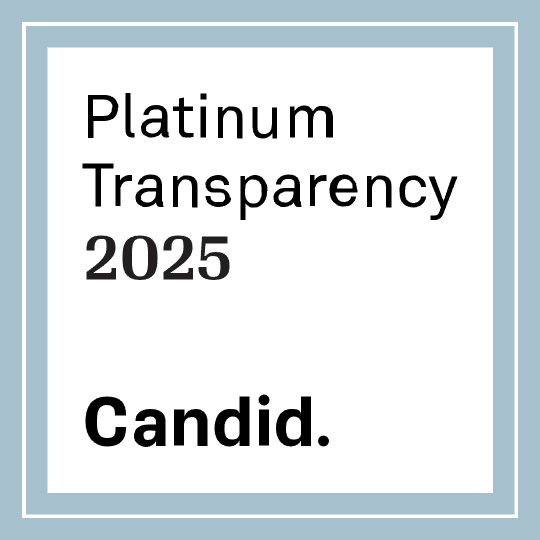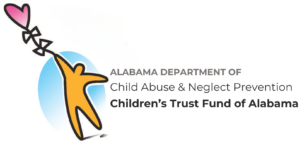September is National Recovery Month, a time dedicated to celebrating people in recovery, spreading awareness about the disease of addiction, and sharing resources far and wide that may be useful to those who are still stuck in active drug or alcohol addiction. The theme for National Recovery Month 2020 was “Celebrating Connections.” As we move into October, we do not want our focus on recovery to stop, but continue throughout the year.
Considering the current climate of the world, with social distancing guidelines and an influx of virtual meetings, it’s easy to see why this year’s theme is focused on connections. After all, developing and maintaining connections is one of the most important parts of recovery.
Personally, I wouldn’t be the sober woman I am today if it weren’t for the meaningful connections I have made in sobriety. Connections are how we know that we are not alone and they are also how we show others that recovery is possible. However, connections don’t just refer to connections we make with other people. Connections are also about the connections we have with ourselves and with a higher power.
In honor of National Recovery Month, let’s take a look at why each of these types of connections is important in recovery.
Finding Hope by Developing Connections with Others
 Before I got sober, the so-called “connections” I had with others were based on a give-and-take basis. For example, when I didn’t have a vehicle, I focused on keeping a connection with my one friend who did. However, as soon as I didn’t need her for a ride anymore, I didn’t care to keep that connection. I could explain countless instances where I used people for what they had and they used me for what I had. Obviously, this had to change when I got sober if I wanted to live a meaningful and happy life.
Before I got sober, the so-called “connections” I had with others were based on a give-and-take basis. For example, when I didn’t have a vehicle, I focused on keeping a connection with my one friend who did. However, as soon as I didn’t need her for a ride anymore, I didn’t care to keep that connection. I could explain countless instances where I used people for what they had and they used me for what I had. Obviously, this had to change when I got sober if I wanted to live a meaningful and happy life.
When I got sober, I craved meaningful, healthy relationships. I realized that, in the past, the closest relationship I had was with my drug of choice – and that relationship was parasitic, at best. Now that I didn’t have drugs or alcohol, my soul yearned for friendships with people who understood what I had been through.
The first connections I developed in sobriety were with the women at the treatment center I went to. I was 22 years old when I went to rehab, but I had friends who were 18, friends who were in their 30s, and friends who could be my grandmother. The crazy thing about it was no matter the age difference, there were so many things we had in common – from the desperate things we did in the past to maintain our addictions to the feelings of despair and anguish we felt before we finally decided to get help. While all of them had just as much clean time as I did, they offered me something I had never felt before – a sense of belonging. That sense of belonging was the initial glimmer of hope that inspired me to hang on to my recovery.
Naturally, relationships from rehab come and go. After all, some people moved back to the states they had traveled to rehab from while others didn’t stay sober and lost touch. However, I continued to build relationships in sobriety with sober women through the rooms of AA.
Connection with others is invaluable in the eyes of a recovering addict. We build connections with our sponsors who guide us through the steps, with other people in recovery who understand where we’ve been and what goals we aim to achieve, and with newcomers who walk into recovery just as clueless as we once did. Connection with others is what holds 12-step fellowships and other support groups together as it allows like-minded individuals to lend support, find purpose, and spread hope.
Finding Confidence by Developing Connections With Ourselves
I’ve always struggled with my self-esteem. Whether it was the acne I struggled with as a teen or the weight I gained in early sobriety – self-confidence doesn’t come easy for me. Although my self-confidence is still a work in progress, it is genuinely stronger when I am sober than when I am not. This is because through developing connections with others, going to therapy, and working the 12-steps, I deepened my understanding of myself.
In order to connect with ourselves, we must sort through the things in our past that aren’t necessarily our brightest, proudest moments. For me, it looked like admitting to myself the truth about my childhood trauma. It also looked like admitting my character defects – from impatience and greed to selfishness and dishonesty. By looking at the things within us that aren’t so pretty, we can begin to understand why we act the way we act, why we think the thoughts we think, and how to self-regulate the emotions that we struggle to keep in check. We can also seek to amend the harms we have made in the past.
 I’ve made amends that were scary. I remember approaching the other person, feeling like an insecure little child, thinking that there was no way this person could forgive me for the things I had done. But, after making the amends and watching that relationship heal, I no longer felt so badly about myself and my past. I began to realize that I wasn’t a bad person and that I am worthy of love and companionship. I also began to forgive myself for the mistakes I had made in the past, allowing myself to extend some compassion to that side of me that had been so insecure and so judgemental for far too long.
I’ve made amends that were scary. I remember approaching the other person, feeling like an insecure little child, thinking that there was no way this person could forgive me for the things I had done. But, after making the amends and watching that relationship heal, I no longer felt so badly about myself and my past. I began to realize that I wasn’t a bad person and that I am worthy of love and companionship. I also began to forgive myself for the mistakes I had made in the past, allowing myself to extend some compassion to that side of me that had been so insecure and so judgemental for far too long.
When we acknowledge all the bad things and make an honest attempt to fix it, we can begin to see the good in ourselves. Then, in continued therapy and 12-step participation, we continue to deepen the connection with ourselves. The more understanding we have about ourselves, the more confident we can be in our behaviors and decisions.
Focusing on developing a connection with ourselves isn’t selfish, it is a form of self-love that is essential for development and growth in sobriety. I spent years and years using drugs and alcohol to run from my thoughts, fears, and emotions, but in sobriety, I get to embrace all of those things as a unique part of who I am.
Finding Strength by Developing Connections With a Higher Power
Spirituality is a huge component of recovery for many people. 12-step programs like NA and AA encourage the idea of relying on a connection with a Higher Power to remove the desire to use drugs and/or alcohol. When I first came to AA, I had no conception of a higher power whatsoever. In fact, the idea of religion, church, or spirituality repulsed me because I prided myself on my analytical thinking and educational background in chemistry. That being said, I was desperate to get sober and to feel better, and the people I trusted in recovery said that in order to do so, I should try being open-minded to the idea of a higher power.
Like everything else in my recovery, my spirituality is still a work of progress as well. It has shifted significantly since I first got sober and it isn’t something I can put into words. All I know is that my connection with my Higher Power provides me with a safe space to turn when I’m struggling or in need of comfort.
In the past, when I felt an emotion I wasn’t comfortable with, I was always so quick to act on it. If I was angry I was quick to lash out on a friend. If I didn’t succeed at something I would always jump to the worst case scenario. Now, I’ve learned how important it is to pause, meditate, and reflect. Through meditation and connection with a higher power, I don’t have to act out on my emotions so quickly because I can recognize that there is a bigger picture. What might feel like the end of the world today isn’t the end of the world because I don’t have to make it seem that way anymore. Instead, I can take a few deep breaths, give my worries up to my Higher Power, and keep going with my day.
Getting Connected During Recovery Month
Connection with others, with ourselves, and with a higher power are three important aspects of sobriety. When we make connections, we not only gain emotional support from other people, but we get the opportunity to challenge our beliefs and take a deep look into our thought patterns and behaviors. Then, we can use those connections to heal, help others, and stay sober.
If you or someone you know is interested in staying involved with Recovery even after Recovery Month, you can visit their official website and continue to post events in your area to promote local recovery resources, events, and gatherings.









